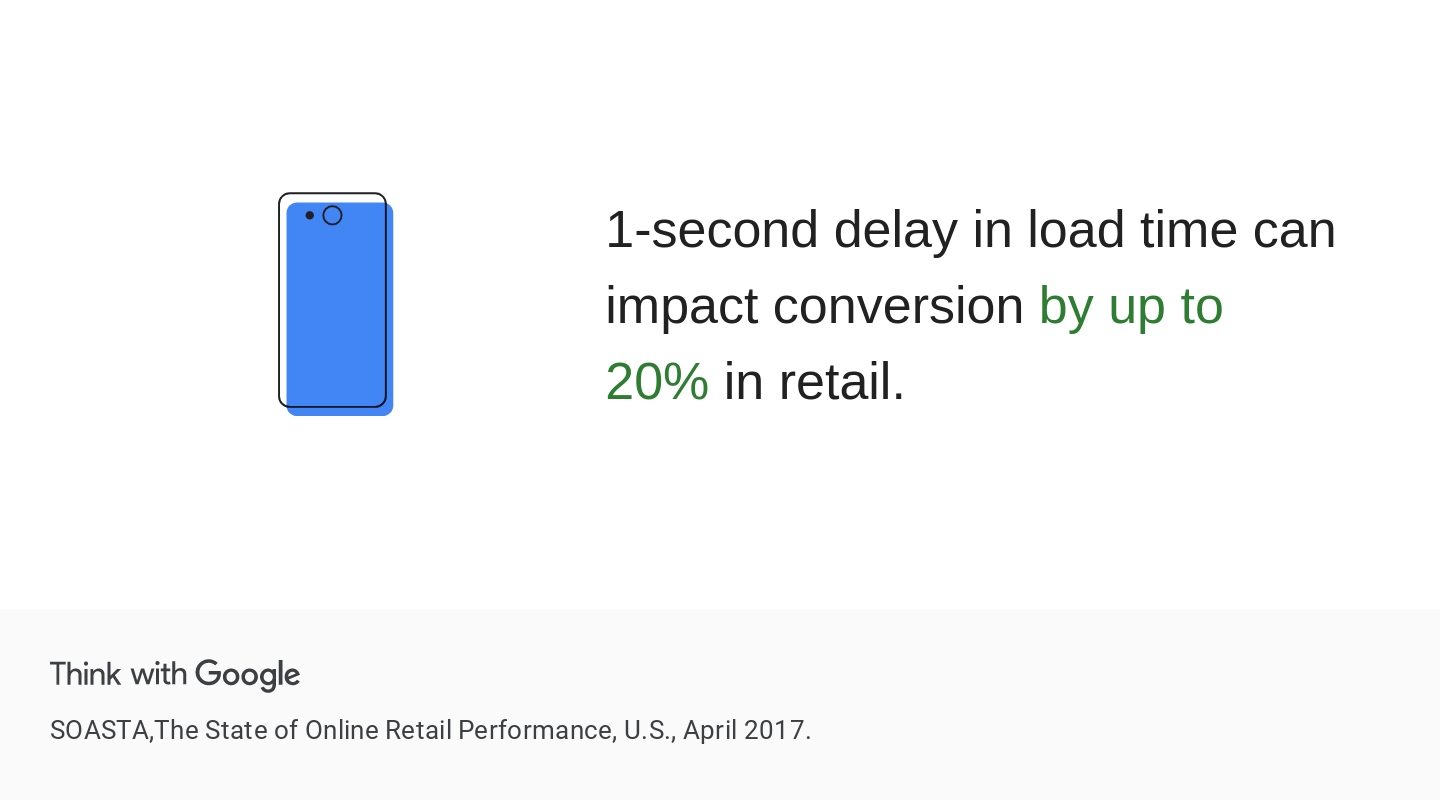
No matter how familiar you are with WordPress, it is very important to understand the impact of website speed and other performance factors on your business. In this article, we’ll delve into the effects on user experience, conversion rates, search engine rankings, and other crucial aspects.
Website performance refers to how fast, flexible, stable, and dependable a website loads and functions. In other words, website performance determines how well your website functions and delivers content to its visitors. It includes various factors of high importance such as page loading speed, smooth website navigation, quick server response time, and optimized content delivery. These factors determine the overall user experience.
The Impact of Website’s Performance
The way your website performs can significantly affect your business in many ways.
User Experience
Analyzing and optimizing website performance is critical for delivering a seamless and satisfying user experience across all devices. A slow or poorly performing website will likely lead to a higher bounce rate. This may also consequently cause a negative perception of your brand. Visitors appreciate websites that load quickly and smoothly, as it allows them to find the information they need effortlessly. On the other hand, a positive user experience encourages visitors to stay longer, explore more pages and increases the likelihood of conversions.
The graph below highlights the impact on load time and bounce rate:

This shows that for every 1,000 visitors you should expect some visitors to leave without visiting another page depending on the page load time.
Conversion rates
Website performance directly influences conversion rates. At the time of writing, stats show that even a one-second delay in page load time can result in a significant drop in conversions.

Customers today have high expectations for quick and seamless online experiences, especially on mobile devices. A slow website can create dissatisfied customers who abandon their shopping carts or leave before completing a desired action. By prioritizing website performance, you create a favorable environment for conversions and boost your business revenue.
NOTE: A conversion rate is the percentage of site visitors who take an action that can be measured or that is desired. It could be something as simple as reading an article or as involved as making a purchase or signing up for a newsletter. The objective of the website’s business determines the activity that is being measured as the conversion rate.
SEO and Rankings
As Google has officially stated, the importance of website speed cannot be overstated, as it is considered a crucial ranking factor. Google appreciates fast and mobile-friendly websites that also provide a smooth user experience. That being said, the fast loading of a website will boost search engine rankings. On the other hand, a slow website will increase bounce rates (and impact your position in the SERPs).
💡 Free performance PDFs: Ready to start improving your site’s speed? Download How to Test & Measure WordPress Speed and Client-Side Optimization Quick Wins. These concise checklists explain how to benchmark your website with tools like PageSpeed Insights, GTmetrix, and WebPageTest, and how to apply quick front-end optimizations to boost real-world performance.
Who Cares About Website Performance?
So, who really cares about website performance? Just techy types? No, essentially anyone who uses the internet will benefit from (and likely appreciate) fast-loading websites.
Business owners use their websites as a crucial tool for attracting customers, generating leads, and driving sales. They rely on their website to create a positive impression, engage visitors, and ultimately convert them into loyal customers. By appreciating the direct impact that of website performance on these business goals, owners can make informed decisions to optimize their online presence and unlock the full potential of their website’s impact on their overall success.
Freelancers seek information on website performance to provide better services to their clients. They need to optimize their clients’ websites for speed, responsiveness, and overall performance to deliver exceptional user experiences. Understanding the value of optimizing website performance allows them to offer valuable insights and recommendations to their clients.
Webmasters are responsible for managing and maintaining their company’s website. Therefore, they need to ensure that the website performs optimally to support marketing efforts, customer engagement, and lead generation.
It’s crucial for Bloggers as well, to grasp the profound impact of website performance on user engagement, search engine rankings, and audience growth. Along their blogging journey, they’ve probably faced various performance issues making them aware of the significance of a fast and responsive website. Understanding the impact of website performance will help them refine their strategies and continue growing their blog.
WordPress Developers are deeply involved in website performance and optimization having a deeper technical understanding. However, having a deeper knowledge of how everything affects user experience, conversions, and SEO helps them keep the highest performance standards.
Front-end Developers, when trying to create beautifully designed and highly functional user interfaces, need to also consider website performance during the development process. This way they will push themselves to use better practices that will return more effective front-end development.
Get Your Free Performance Audit Today!
Discover hidden opportunities.

Where Does Website Performance Apply?
Website performance applies to all types of websites, regardless of their purpose or target audience. Let’s see why.
Commercial Websites
The performance of online stores has an effect on both sales and the level of satisfaction experienced by customers. E-commerce websites that perform well have product pages that load quickly, navigation that is easy to understand, and a payment process that is streamlined. These features help them maximize sales and retain customers
Content-Focused Websites
Performance is essential for content-focused websites such as blogs because it ensures quick access to articles, simple navigation, and rapid loading of multimedia elements such as images and videos. A better performance encourages readers to investigate additional content and return for future publishes. It can also lead to an increase in social sharing and reader engagement.
Websites that share news, articles, or multimedia content need to load quickly and effectively to meet the needs of users seeking the latest information. A boost in performance makes it easier to keep users and motivates current users to consume more content.
Educational and Community Websites
The performance of online courses (E-learning platforms) is vital for providing lessons, multimedia content, and interactive elements. A well-functioning e-learning platform ensures uninterrupted access to course materials, leading to a better learning experience and higher course completion rates.
Performance is crucial for websites where people connect and interact, like message boards, social networks, and online communities. A community website that functions effectively gives users the ability to post, browse, and interact with content in a short amount of time. This drives users to become more involved and helps members feel more connected to one another.
Profile Websites
Performance is crucial for creating a positive first impression and presenting a professional image on business and corporate websites. When a company displays its products or services online, a fast and responsive website encourages potential clients to explore the offerings and make inquiries. This ultimately leads to more leads and increased sales.
The outcomes are the same when examining individual portfolios and websites. Whether showcasing professional work, creative projects, or personal interests, performance plays an essential role in ensuring that visitors can quickly and easily access the content being showcased. This not only improves the user experience but also increases the likelihood of receiving positive feedback or opportunities.
This article is part of our comprehensive performance series that explores how to speed up WordPress from both a business and technical perspective.
See Also
- What is Performance Testing?
- Measuring Performance: What to Consider Before Testing and Optimization
- Measuring Website Performance: Tools
- How To Reduce Initial Server Response Time (TTFB) in WordPress
Want to go deeper? You can read the full WordPress Performance Optimization Guide online to discover practical strategies, performance testing workflows, and advanced server-side techniques.
No downloads, no email required. Just free, in-depth content.
Frequently Asked Questions
What is web performance?
Web performance refers to how efficiently and effectively a website functions, loads, and delivers content to its visitors. It encompasses factors such as page loading speed, smooth navigation, server response time, and optimized content delivery.
Website performance is vital for all types of websites, including commercial, content-focused, educational, community, and profile websites, as it directly influences user satisfaction, sales, and overall business success. It matters to website owners, web developers, freelancers, bloggers, and anyone using the internet as it can greatly affect their goals and experiences.
Why page speed is important?
Page speed is important because it directly impacts user experience, conversion rates, and search engine rankings. A fast-loading and smoothly functioning website provides a seamless and satisfying user experience, leading to longer visit durations and increased conversions. Even a one-second delay in page load time can significantly decrease conversions. Additionally, search engines prioritize websites with fast loading speeds, resulting in higher rankings.
Also, website performance matters to businesses, freelancers, webmasters, bloggers, developers, and individuals across various industries. It applies to commercial websites, content-focused websites, educational and community websites, profile websites, and individual portfolios. Optimizing website performance is crucial for maximizing sales, retaining customers, delivering content efficiently, and making a positive impression on visitors.
Why is page speed important for SEO?
Page speed is important for SEO because it affects user experience and conversion rates. Faster-loading websites provide a better user experience, leading to higher engagement and lower bounce rates. That is why Google considers page speed as a ranking factor, rewarding websites that provide a smooth user experience and load quickly.
What are the benefits of website speed optimization?
Website speed optimization provides numerous benefits. It improves user experience by making websites faster and easier to navigate. This leads to higher engagement, more conversions, and increased revenue. Optimized performance also boosts search engine rankings, making websites more visible to potential visitors.
Additionally, it helps educational platforms deliver seamless learning experiences and fosters active participation in online communities. For businesses and individuals, website performance creates a positive impression and opens doors to opportunities. Ultimately, optimizing performance enhances user satisfaction, drives growth, and maximizes the impact of websites.
Start Your 14 Day Free Trial
Try our award winning WordPress Hosting!

















